This article will provide you with the best foods for composting and the worst foods for composting. Best of all, I'll give you some simple tips to make composting easier and more fun! The following content also has some reference value for raised garden beds.
Before we begin, it's important to take a minute to define what macronutrients and micronutrients are and why it's important for this article and for composting.
Quite simply, macronutrients are nutrients that every plant in your garden needs.... No exception.
While knowing what each macronutrient does isn't important for composting, it is important to know what the 6 nutrients are. They are phosphorus, potassium, calcium, magnesium, sulfur and nitrogen.
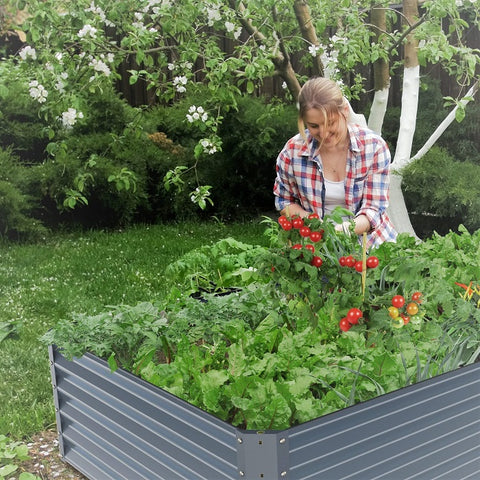
While macronutrients are key to plant survival, micronutrients are required in very small quantities and are important to help plants become healthier and produce better yields.
Knowing micronutrient is not as important as knowing macronutrient, but it's still important to know how important they are to compost and your garden. They include boron, manganese, zinc, copper and iron.
While there are hundreds of foods you can compost, I'd like to offer you 9 of the best organic wastes:
Compost (9 Food Waste)
#1. Banana peel (macronutrients)
Remember, the goal of this article is to find the most effective food for nutrition. Banana peels are one of the easiest and most nutritious foods to compost.
Banana peels provide phosphorus, a valuable nutrient for your stomach.
This will allow your plants to produce the strongest root growth and better flowering, which will ultimately give you a better crop yield.
In addition, phosphorus allows plants to better combat different stressors (heat, disease, cold, etc.).
#2. Coffee grounds (macronutrients)
Have you ever driven by a Starbucks and wondered what they do with all those coffee grounds? Neither have I. The good news for you, though, is that coffee grounds are probably the best food waste to add to your compost.
Coffee grounds provide your stomach with valuable nutrients magnesium and potassium.
Both are absolutely critical for the growth of new plants, increased resistance to disease and, in some cases, improved drought resistance.
If you grow perennials that are deficient in potassium, very few new plants will grow each year.
#3. Eggshell (macronutrient)
Do you like baked goods? How about a nice omelet? If you answered yes, you must have some eggshells.
Eggshells are a great way to provide calcium for compost. Don't overdo it. It works in plants as it does in humans.
Eggshells will give your plant the nutrients it needs to stay strong, support structural growth, and support ripening fruit (you don't want to grow fruit just to have it fall off too early).
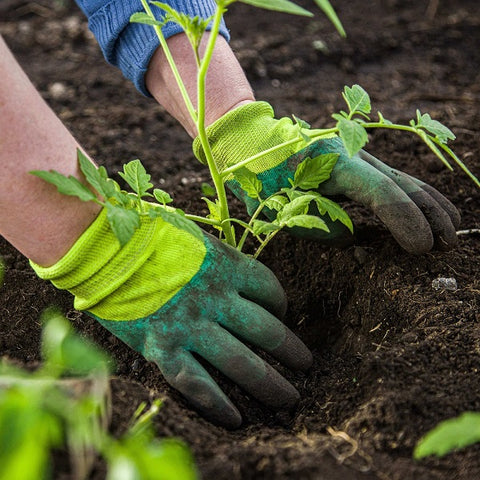
#4. Brocolli(macronutrients)
Brocolli. It's delicious with cheese on it and is easily available at any grocery store in the United States.
Broccoli is a great way to add sulfur (and micronutrient iron).
Simply put, this will help your plant grow while helping it better withstand cold and disease.
There is nothing worse than putting time and effort into the garden, only to have the crop ruined before it can be harvested.
#5. Grass or leaves (macronutrients)
Well, it doesn't have to be food, but it will be one of the most important ingredients.
When grass or leaves are green, they add the most important nutrient to your compost: nitrogen.
Why is nitrogen so important?
Because without it, your plants, your garden, and everything else organic would be gone.
If your garden isn't healthy or growing as you'd like, then a lack of nitrogen may be the cause.
#6. Apple (Micronutrients)
As a reminder, the goal of this article is to compost the most efficient and easily accessible food waste. Nothing is easier to find than apples. Any apple, any color, any variety will do.
Apples provide you with boron, a valuable nutrient.
If you notice that your plants are not producing a lot of seeds or lack fruit development, then adding apples to your pile will greatly increase crop production.
#7. Tomato (Micronutrients)
What could be better than fresh, juicy tomatoes from the garden? I don't think so, and neither do the plants that take in nutrients from the compost.
Tomatoes are a major source of magnesium. This is a key factor if you want your plants to grow faster.
I recommend adding it to your soil as soon as you start planting. If you wait too long, you may have to wait until next year.
#8. Peanuts (Micronutrients)
Have you ever tried peanut butter on a burger? If you've tried it, you'll understand that this is one of the greatest discoveries of all time. If not, you should try it.
You know what else you should try?
There are peanuts in your compost.
Peanuts are a great food that can help increase zinc. Zinc is a key ingredient that helps plants regulate food processing. Think of it this way.
Without zinc, humans would be the size of balloons, or rats. The same is true of plants.
#9. Potato (Micronutrients)
All of my readers in Idaho will enjoy this article.
Potatoes are rich in the nutrient element copper. If you raise a perennial plant and notice that it is difficult to propagate, you may want to add potatoes to your compost.
Other great organic waste compost
If you don't have the above 9 best foods to compost or want other organic waste to compost, look no further.
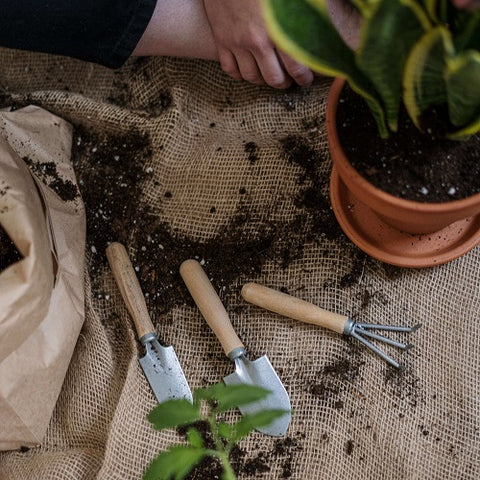
Here's a list of brown and green organic waste you can and should add to your compost:
Compost fast
Cut grass and shrubs
Fertilizer (organic)
Bread and cereal
Aged wine or beer
Dry cat or dog food
Lint from the dryer
Ancient herbs and spices
Hay and straw
Seaweed
Bread crumbs
Cooked rice
Stale potato chips (pita, tortillas, or potatoes)
Pasta sauce
Dry pretzels
Stale protein bars
Candy
Oatmeal
Jam
Dead flower
Dead plant
Dog hair
Feather
Slow composting
Newspaper
Paper towels and paper towels
Cardboard
Carton of eggs
Pine needle
Sawdust
Branch
Hair
Dried pasta
In short
Toothpick
Cotton/wool cloth
Wine cork
Potpourri
Burlap
Wrapping paper roll
What not to compost
While the goal of this article is to provide you with the best recyclable food, you may also be asking yourself which foods can't be composted.
Again, if you do your research, you'll find plenty of non-compost and lengthy descriptions, but nothing that's direct and to the point.
Here's what you should never compost:
Pet waste
Coal ash
Coloured paper
Diseased plant
Chemical substance
Pesticide
Fertilizer
Fat/grease
Black walnut leaf
Tea/coffee bag
Onion or citrus peel
Fish and meat pieces
Treated wood
Weed
Dairy products
Printed paper
Why not use the waste?
Each of the above has specific reasons why you shouldn't compost them, but there are two really important ones.
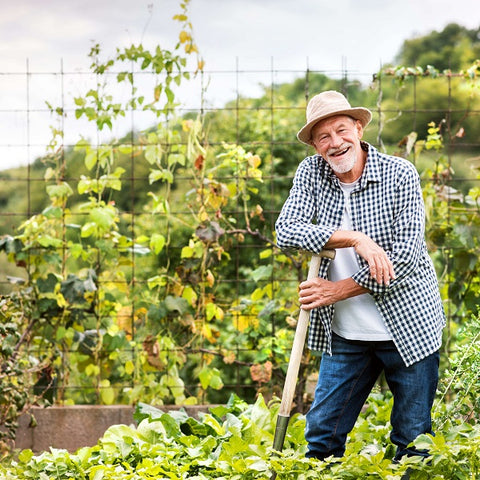
These items contain ingredients that are toxic to your plants, will attract animals and cause damage to your property and garden, or attract parasites that can destroy the garden in a matter of days or weeks.
These foods contain ingredients that are toxic to you, or contain parasites that can cause you long-term damage and illness.
3 Common Problems
#1. What are the different types of compost?
Before we get into what the best food is, it's important to have a general idea of what compost is and the three types you can make it.
Compost is raw organic waste from your garden, kitchen, and home.
According to the EPA, most Americans "throw away" 30% of organic waste that can be composted.
This is an attractive gardening technique because you can control the amount of organic waste you use and what you put into your pile.
So what are the three types of techniques you can use?
- A) Cold compost
Cold composting is when you simply collect yard waste and put it in a pile or bin.
Usually, cold compost does not involve organic waste materials in your home, such as vegetables, fruits, eggshells, etc.
Cold composting can take up to a year and is a great and easy way to compost. For most gardeners, a year's wait is unreasonable.
- B) Hot compost
Hot composting is the addition of nitrogen, air, carbon and water to a pile or pin.
Typically, hot compost includes organic waste material from your home.
The difference between hot compost and cold compost is that you add a large mixture to speed up the process. Cold composting is the slow addition of waste throughout the year.
Worm composting involves adding food scraps to the worm composter. Special worms in composters break down waste into nutritious compost.
Whatever method you decide to use, composting can be an incredibly effective way to add nutrients to your garden.
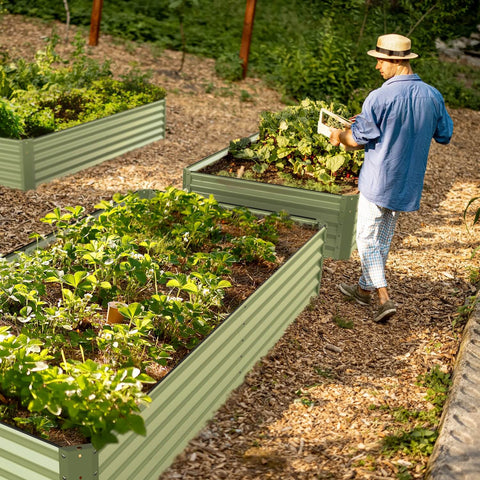
#2. How to compost?
Composting is easy. Just follow these steps!
Step 1
When starting a pile, you will need about 3 feet of trash.
Make sure the trash you add to your pile is made up of a 3:1 ratio of brown to green. That means for every foot of green waste, you should have 3 feet of brown waste.
Simply dump the green and brown trash into a pile or bin and water it for 30 seconds or so.
Water and heat are necessary for the decomposition process.
Step 2
Water once a week for 30 seconds and stir with a pitchfork (unless using a tumble composter) a few times.
Step 3
Once your pile stops giving off heat or looking like dirt, add it to your garden.
You want to add 4 to 6 inches to your garden and flower beds as you see fit.
If you want more compost, repeat these three steps again and again!
How can I speed up the composting process?
In order for your pile to break down into valuable nutrients, it should be around 120 to 160 degrees Fahrenheit.
To help speed up the decomposition, I recommend shredding all your trash.
The smaller the waste, the faster it generates heat and becomes compost.
Shredding and shredding is not only the best practice, but you should always let your compost out in the sun.
But sometimes that's not enough.
If you find that your composting process is taking too long, then I recommend investing in an activator.
Activators add nitrogen and microbes to your pile, speeding up the decomposition process.
I recommend the following activators:
Alfalfa meal
Blood
Cottonseed meal
Compost starter









